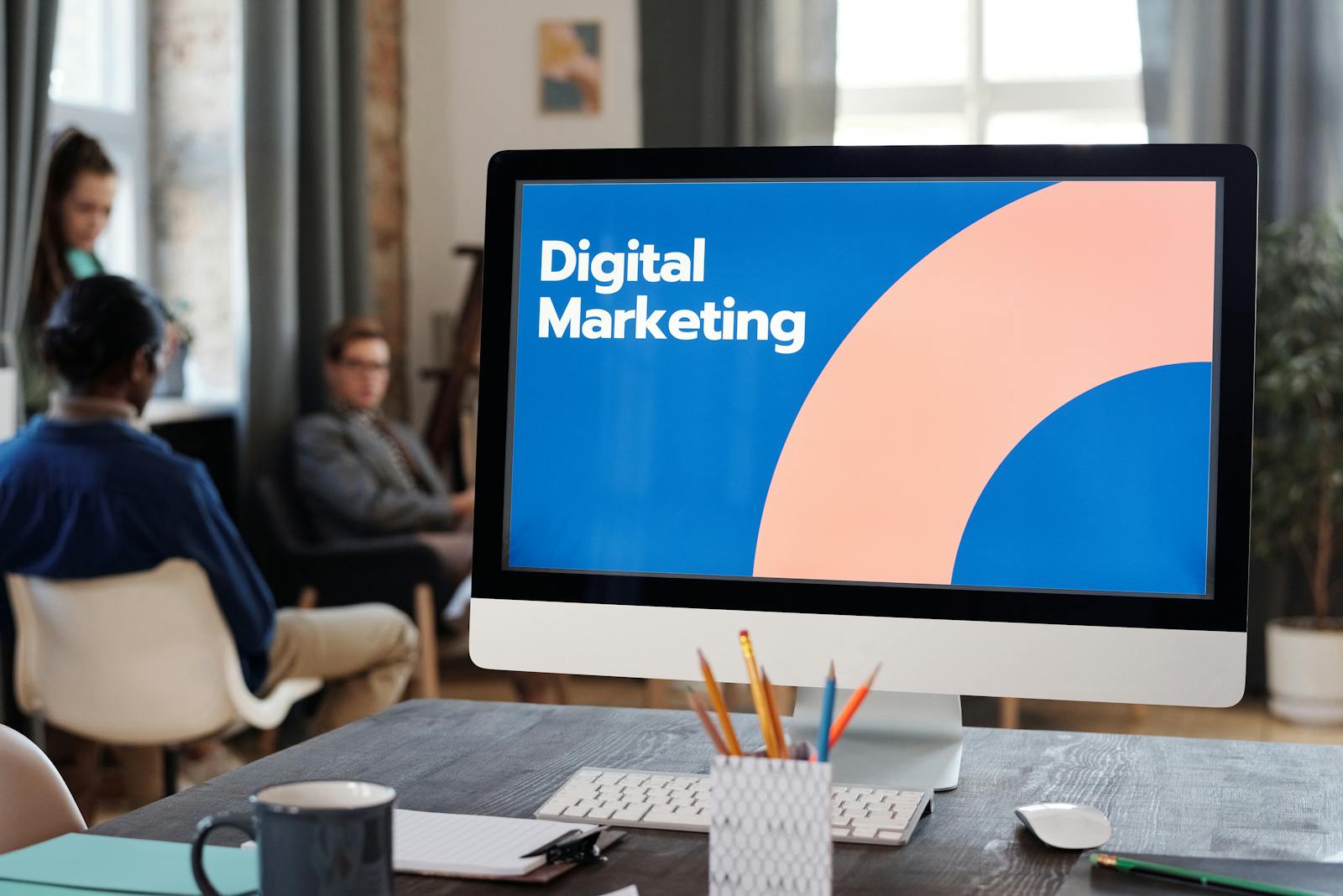Google Online Digital Marketing Boca: 10 Must-Know Strategies
How important is it to create a customer persona for digital marketing?
What are the key benefits of implementing automations in digital marketing?
Why is mobile optimization essential for digital marketing success?
How does tracking process and progress contribute to effective digital marketing strategies?
What role does technology play in optimizing digital marketing efforts?
Looking to boost your online presence with a Google ad campaign and expand your business reach? Dive into the world of digital marketing with our comprehensive guide tailored for businesses in Boca. From leveraging Google Ads campaign to optimizing SEO strategies, we’ve got you covered with expert insights and actionable tips.
In this listicle, discover the top Google tools and techniques for maximizing your online visibility and driving traffic to your website. Uncover the power of social media advertising, harness the potential of local search optimization, and learn how to craft compelling content that resonates with your target audience. Scroll down for reviews of our top picks!
1. Create a Customer Persona
Researching people’s demographics, behaviors, and preferences is crucial for understanding your target audience. By analyzing data such as age, location, income level, and interests, you can gain valuable insights into the characteristics of people.
Developing fictional characters representing your ideal customers allows you to personalize marketing strategies. For instance, if you’re targeting young adults interested in sustainable living, create a persona named “Eco-Friendly Emily” who embodies these traits. This approach helps tailor content and messaging to resonate with specific consumer segments.

Utilize surveys and interviews to gather firsthand insights from your target audience. Engaging directly with consumers provides authentic perspectives on their needs and pain points. It enables you to identify patterns or commonalities among different individuals within your client base.
2. Identify Your Goals
Defining specific, measurable, achievable, relevant, and time-bound objectives is crucial for a successful digital marketing strategy. By setting clear goals, you can effectively track the progress of your campaigns and make data-driven decisions.
Aligning your goals with business growth and customer engagement ensures that your digital marketing efforts are directly contributing to the overall success of your organization. For instance, if one of your business goals is to increase sales by 15% within the next quarter, aligning this with a digital marketing goal to generate leads through targeted online advertising can provide a direct path toward achieving this objective.
Prioritizing goals based on their impact on your digital marketing strategy allows you to allocate resources efficiently. This means focusing more effort on high-impact objectives that will significantly drive results for your business.
3. Focus on Content
Producing high-quality, valuable content is the cornerstone of any successful digital marketing strategy. By creating content that resonates with your audience, you can establish authority in your industry and drive organic traffic to your website.
Utilizing various formats such as blogs, videos, infographics, and podcasts allows you to cater to different preferences within your target audience. For instance, some individuals may prefer consuming information through visual mediums like videos or infographics rather than written articles.
Implementing an editorial calendar for consistent content creation is essential for maintaining a steady stream of engaging material. This approach ensures that you stay organized and on track with your content production efforts. It helps in planning out the distribution of various types of content across different platforms.
4. Evaluate Existing Digital Marketing Channels
When assessing the performance of current digital marketing channels such as social media, email marketing, and SEO, it’s crucial to delve into specific metrics. Look at engagement rates, click-through rates, conversion rates, and the generation of organic traffic for each channel. By doing so, you can gain a comprehensive understanding of their individual effectiveness.
Identifying the strengths and weaknesses of each channel is essential for optimizing your digital marketing strategy. For instance, while social media may excel in building brand awareness and fostering customer engagement through online reviews or campaigns, email marketing might be more effective in driving conversions due to its personalized approach.
Determining which channels are most effective in reaching your target audience involves analyzing demographic data and user behavior patterns across different platforms. This analysis ensures that your efforts are focused on the channels where your audience is most active and responsive.
5. Explore and Implement Automations
Researching automation tools can revolutionize your digital marketing strategy, especially for tasks like email campaigns and social media scheduling. By implementing these tools, you can streamline repetitive processes, saving valuable time and resources that can be redirected to other critical aspects of your marketing efforts.
Automation not only increases efficiency but also ensures consistent delivery of content to your target audience. For instance, automated email campaigns allow you to schedule personalized messages based on customer behavior or demographics without the need for manual intervention.
Furthermore, automating social media scheduling enables you to maintain a consistent online presence across various platforms while tailoring posts to specific times when your audience is most active. This consistency helps build brand recognition and keeps your followers engaged with relevant content.
It’s crucial to note that despite utilizing automation tools, maintaining a personalized touch is paramount. Customers appreciate feeling valued as individuals rather than just another recipient of mass-generated content. Therefore, it’s essential to use analytics data from these tools to tailor communications according to individual preferences whenever possible.
6. Nail Mobile Optimization
Optimizing your website for mobile devices is crucial in today’s digital landscape. To ensure a seamless user experience, it’s essential to prioritize mobile optimization.
Responsive design is key; it allows your website to adapt to various screen sizes, providing an optimal viewing experience for users across different devices.
Testing loading speed and user experience on multiple mobile platforms is vital. According to Google, 53% of mobile site visits are abandoned if pages take longer than three seconds to load. Therefore, ensuring fast loading times can significantly impact user engagement and retention.
Mobile optimization goes beyond just design; it also involves tailoring content for smaller screens. This means concise yet impactful messaging that captures the audience’s attention quickly.
Google emphasizes the importance of mobile-first indexing, where the search engine predominantly uses the mobile version of a site for ranking and indexing. This underlines the significance of prioritizing mobile optimization not only for user experience but also for search engine visibility.
7. Make It Easy for Customers to Reach You
Providing multiple contact options is crucial in ensuring that potential customers can easily reach out to your business. Phone, email, chat support, and social media messaging are effective channels for communication, catering to the diverse preferences of clients.
Clear call-to-action buttons play a significant role in guiding visitors towards making inquiries or purchases. These buttons should be strategically placed on your website or within marketing materials to prompt leads into taking action.
Convenience is key. By offering extended support hours or round-the-clock availability, you can accommodate different time zones and cater to a wider market base.
Integrating chatbots on your website can provide immediate responses and assistance even outside regular working hours. This proactive approach contributes significantly to lead generation and ultimately boosts sales by providing timely support at every stage of the customer journey.
8. Use the Right Technology
Investing in the right technology is crucial for taking your digital marketing efforts to the next level. Here’s why:
Tools for Analytics, CRM, SEO Optimization, and Marketing Automation: Utilizing advanced analytics tools can provide valuable insights into consumer behavior and preferences. Customer Relationship Management (CRM) software helps businesses manage their interactions with current and potential customers. Investing in Search Engine Optimization (SEO) optimization tools ensures that your online content is easily discoverable by your target audience.
Staying Updated with Latest Technology Trends: Keeping abreast of technological advancements in digital marketing allows you to remain an authority in your niche. By embracing emerging technologies such as AI-driven marketing automation or virtual reality experiences, you stay ahead of the competition.
Enhancing Customer Experiences and Streamlining Operations: Leveraging technology enables you to deliver personalized customer experiences at scale while streamlining internal processes. For instance, chatbots powered by artificial intelligence can engage website visitors 24/7, enhancing customer satisfaction and increasing conversion rates.

Google Online Digital Marketing Boca: 10 Must-Know Strategies
9. Confirm Your Differentiators
Identifying unique selling propositions is crucial for standing out in the digital marketing landscape. By pinpointing what sets your business apart from competitors, you can effectively tailor your marketing strategies to highlight these differentiators.
Consistently communicating your key advantages across all marketing channels reinforces brand identity and resonates with the needs of your target audience. This consistent messaging helps build trust and credibility, ultimately leading to higher conversions.
For instance, if a clothing brand prides itself on using sustainable materials, this unique selling proposition can be emphasized in social media campaigns, email newsletters, and website content. By consistently showcasing this differentiator, the brand can attract environmentally conscious consumers who are more likely to convert into customers.
In another example, an online grocery store that offers same-day delivery and personalized shopping experiences should emphasize these benefits across its various marketing platforms. Doing so ensures that potential customers immediately recognize the value they would receive by choosing this particular grocery store over its competitors.
10. Track Your Process and Progress
Setting up tracking mechanisms for website traffic, conversions, and campaign performance is essential for evaluating the effectiveness of your digital marketing efforts. Utilize tools like Google Analytics to gather data on user behavior, demographics, and acquisition channels.
Regular analysis of this data allows you to make informed decisions about optimizing your marketing strategies. For instance, if you notice a high bounce rate on a particular webpage, it may indicate that the content or user experience needs improvement.
By adjusting your strategies based on insights gained from tracking results, you can enhance the performance of your campaigns over time. For example, if A/B testing reveals that a different call-to-action button significantly increases conversion rates, you can implement this change across all relevant pages.
Tracking progress helps in identifying trends and patterns in consumer behavior. This can inform future campaign planning and budget allocation by focusing resources on tactics that have proven successful in driving engagement and conversions.
Summary
You’ve now got a solid understanding of the essential steps for successful digital marketing. By creating a detailed customer persona, setting clear goals, and focusing on engaging content, you’re laying the groundwork for effective online marketing. Evaluating existing channels, implementing automations, and optimizing for mobile will further boost your digital presence. Making it easy for customers to connect with you and utilizing the right technology are crucial for staying ahead in the digital marketing game. Don’t forget to highlight what makes your brand unique and track your progress along the way.
Now that you have these tools in your arsenal, it’s time to put them into action. Start implementing these steps and watch your online presence soar! Remember, consistency is key, so stay committed to refining your digital marketing strategy. Good luck on your journey to digital marketing success!
Frequently Asked Questions
How important is it to create a customer persona for digital marketing?
Creating a customer persona is crucial as it helps you understand your audience’s needs, preferences, and behaviors. This insight allows you to tailor your digital marketing strategies effectively, delivering content and solutions that resonate with your target customers.
What are the key benefits of implementing automations in digital marketing for lead generation, keywords, search engines, and valuable content?
Implementing automations can streamline repetitive tasks, enhance efficiency, and deliver personalized experiences at scale. By leveraging automation tools like email workflows or chatbots, businesses can nurture leads, provide timely responses, and optimize their overall marketing efforts.
Why is mobile optimization essential for digital marketing success?
Mobile optimization is vital because the majority of online users access content through mobile devices. Ensuring that your website and content are optimized for mobile enhances user experience, boosts search engine rankings, and maximizes engagement with potential customers on various devices.

How do tracking process and progress contribute to effective digital marketing strategies?
Tracking process and progress provides valuable insights into the performance of different campaigns and channels. It enables marketers to identify what works well, make data-driven decisions for optimizations or adjustments in real-time while ensuring continuous improvement across their digital marketing initiatives.
What role do keywords play in optimizing digital marketing efforts?
Utilizing the right technology empowers businesses to automate tasks efficiently, analyze data accurately, personalize customer experiences effectively, and adapt quickly to market changes. By leveraging suitable technologies such as CRM systems or analytics tools, businesses can elevate their overall digital marketing capabilities.


